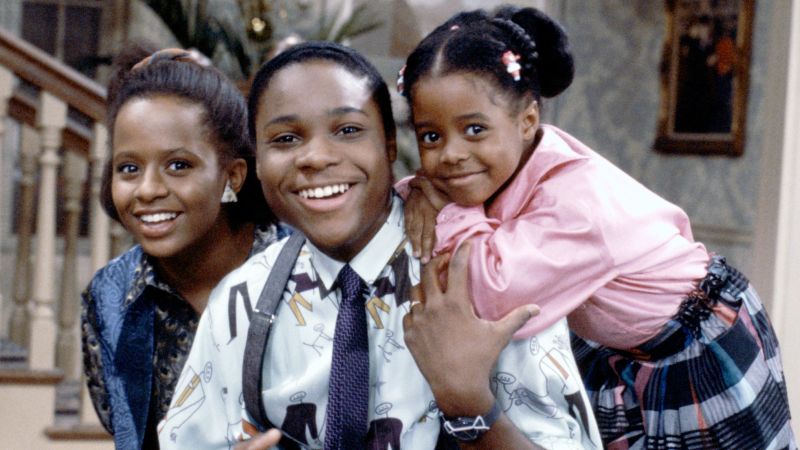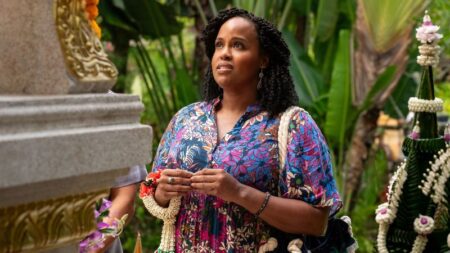The untimely passing of certain celebrities resonates profoundly within specific communities, and the recent death of Malcolm-Jamal Warner is a poignant example of this phenomenon. Warner, who tragically died in a drowning accident in Costa Rica at the age of 54 while on vacation with his family, has profoundly impacted the Black community, eliciting a sense of loss comparable to that felt after the deaths of other icons such as Prince, Kobe Bryant, and Chadwick Boseman. This grieving process reflects a sentiment akin to mourning a family member, showcasing the deep connection that ties these figures to the lives and experiences of their audience.
From the onset of his career, it was evident to the world that Malcolm-Jamal Warner possessed a unique talent. As a child actor, he appeared in various television series; however, it was his role as Theo Huxtable on the acclaimed sitcom “The Cosby Show” that catapulted him into superstardom. The show not only featured Warners’s exceptional acting skills but also provided a platform for the representation of an accomplished and loving Black family. This cultural touchstone became particularly significant for Generation X, especially young Black individuals, allowing them to see themselves reflected on a mainstream audience’s screen.
Warner’s portrayal of Theo Huxtable, the clever and sometimes mischievous son of Cliff and Clair Huxtable, skillfully crafted by Bill Cosby and Phylicia Rashad respectively, endeared him to audiences, leading many to forget that they were watching an actor play a role. His character became an integral part of this family-centric narrative, which blurred the lines between fiction and reality for many viewers. This deep connection created a feeling of shared loss within the community following Warner’s tragic demise.
Unlike many child stars who falter under the pressures of fame, Warner successfully navigated his career after “The Cosby Show.” He transitioned into other beloved series like “Malcolm & Eddie,” “The Resident,” and “9-1-1,” reaffirming his talent and versatility. This ability not only brought him stellar roles but also respect and admiration from his peers and colleagues. Fellow actors, including Morris Chestnut, Tracee Ellis Ross, and Eddie Griffin, expressed deep sorrow at his shocking death, resonating with the shock particularly experienced within the Black community.
Social media lit up with emotional tributes. Yvette Nicole Brown, who shared the screen with Warner in the show “Community,” lamented his loss, expressing that his friendship had been a blessing. The sentiments were overwhelmingly shared by many who appreciated Warner not just for his talent, but for the person he was off-screen. Scholars and cultural critics have also weighed in, with Samantha Sheppard, an associate professor of cinema and media studies at Cornell University, noting that Warner’s death signifies a considerable cultural loss, particularly regarding representation of Black middle-class life in media.
Even as the legacy of “The Cosby Show” faces scrutiny due to the allegations surrounding Bill Cosby, Warner’s evolution as an actor and artist has often regressed to the background. This oversight often diminishes the recognition of his extensive contributions beyond that iconic role, encompassing his diverse skills as a poet, musician, and actor across TV dramas and comedies.
In a retrospective revealing insight into his life, Warner conveyed contentment in a conversation with the Television Academy Foundation in 2013, emphasizing peace of mind in his post-“Cosby Show” career. He relished his achievements, underscoring the importance of family life over the chaos that often accompanies fame. He cherished his marriage and the life he built with his wife and daughter, sharing his spiritual understanding of legacy and mortality.
Warner’s desire to be remembered as a good person reflects his genuine character. He aspired to leave an enduring legacy that honored the complexities of his career and personal life. The outpouring of grief and tributes following his death speaks volumes about the influence he had throughout his life and the void left behind in his community. The loss of Malcolm-Jamal Warner is profound, marking not just the passing of an artist but also the end of a meaningful era for many, revealing that he was indeed much more than just the character Theo Huxtable.











